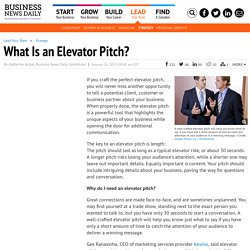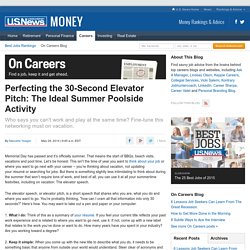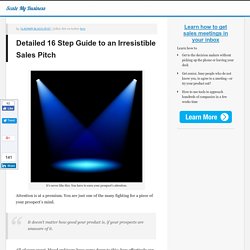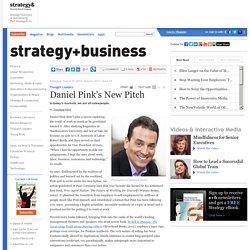

Your 30-Second Pitch: Speak Not in Code. Best Elevator Pitch: 30-Second Speech to Grab Your Audience. A well-crafted elevator pitch will help you know what to say if you have just a short amount of time to catch the attention of your audience in a winning message. / Credit: Golden Pixels LLC | Shutterstock If you craft the perfect elevator pitch, you will never miss another opportunity to tell a potential client, customer or business partner about your business.

When properly done, the elevator pitch is a powerful tool that highlights the unique aspects of your business while opening the door for additional communication. The key to an elevator pitch is length: The pitch should last as long as a typical elevator ride, or about 30 seconds. A longer pitch risks losing your audience's attention, while a shorter one may leave out important details. Equally important is content.
Why do I need an elevator pitch? Great connections are made face-to-face, and are sometimes unplanned. With that in mind, remember that an elevator pitch should not contain intricate details of the business. Get_file?p_l_id=1421126&folderId=1421889&name=DLFE-6056. How To Tell Your Story In 30 Seconds. Flickr/DellPhotos How do you get people interested in you when you only have 30 seconds?

Whether you're at a job interview, networking at a cocktail party, or run into Warren Buffett in the elevator, quickly persuading others to think you're the most interesting person they'll meet is no easy task. "Most people can't present what they've done effectively," Paul McDonald, a senior executive director at staffing firm Robert Half, tells Business Insider. "They're not used to giving sound bites of what they do. " Below, McDonald gives us eight steps to crafting the perfect elevator pitch: 1. Your elevator pitch should answer three questions: Who are you? "Take your resume and LinkedIn profile and go through it thoroughly," says McDonald. 2. After studying your resume and LinkedIn profile, write down four bullet points that explain why you're great, advises McDonald. 3. People love stories, says McDonald, so tell them a story. 4. Dumbing down complex ideas is a "real art," says McDonald.
Perfecting the 30-Second Elevator Pitch: The Ideal Summer Poolside Activity. Memorial Day has passed and it’s officially summer.

That means the start of BBQs, beach visits, vacations and pool time. Let’s be honest: This isn't the time of year you want to think about your job or where you want to go next with your career – you’re thinking about vacation, not updating your résumé or searching for jobs. But there is something slightly less intimidating to think about during the summer that won’t require tons of work, and best of all, you can use it at all your summertime festivities, including on vacation: The elevator speech. The elevator speech, or elevator pitch, is a short speech that shares who you are, what you do and where you want to go. You’re probably thinking, "how can I cram all that information into only 30 seconds? " 1. 2. Selling Tips: 10 Principles for the Best Customer Experience. Detailed 16 Step Guide to an Irresistible Sales Pitch - Scale My Business. It’s never like this.

You have to earn your prospect’s attention. Attention is at a premium. You are just one of the many fighting for a piece of your prospect’s mind. It doesn’t matter how good your product is, if your prospects are unaware of it. All of your sweat, blood and tears have come down to this: how effectively can you paint a picture of a better world in your prospect’s mind’s eye? And will they sign (up)? It’s not something to leave to chance. What follows are 16 key ingredients for creating an irresistible sales pitch, guaranteed to capture the attention and imagination of your prospect, and convert promotion into sales. Step #1. Without hooks, there are no sales. Positive emotions increase long-term conversions and customer lifetime value.
How to Deliver a Good Sales Pitch: 8 Steps. Daniel Pink’s New Pitch. Daniel Pink didn’t plan a career exploring the world of work as much as he gravitated toward it.

After studying linguistics at Northwestern University and law at Yale, he became an aide to U.S. Secretary of Labor Robert Reich, and then served as chief speechwriter for Vice President Al Gore. “When I had the opportunity to dole out assignments, I kept the ones about work, labor, business, economics, and technology,” he recalls. In 1997, disillusioned by the realities of politics and burned out by the workload, Pink quit to write under his own byline. An article published in Fast Company later that year became the kernel for his acclaimed first book, Free Agent Nation: The Future of Working for Yourself (Warner Books, 2002). Several more books followed, bringing Pink into the ranks of the world’s leading management thinkers and speakers. S+B: We used to hear that selling would cease to exist as a function—that salespeople would be disintermediated by the Internet. 6 new pitches for selling your product, your idea, or yourself. Sixpitches.pdf.
6 Successors to the Elevator Pitch.